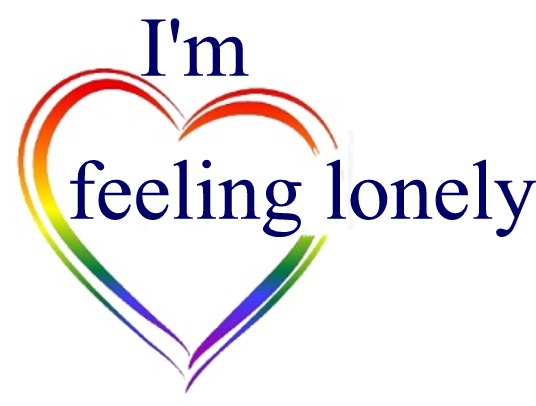Trauma and lonely
Our heart goes out to you if you are one of the many people who have been on the receiving end of a crime or other traumatic event. Your world changes; your thoughts and your behaviours. Amongst all the other emotions you might be feeling, our concern is the loneliness you might feel over time… even after you have received good victim support.
Likewise as a family member of someone who has been involved in crime or trauma, you might feel the burden of what took place, and you might feel as though your life has also changed. So whether you are family of the person who was involved directly with the crime or trauma, or family of the offender, we empathise with you having to deal with all your own emotions and worrying endlessly about your loved one. Again, we are concerned if loneliness starts pervading your thoughts.
So if you are one of the many people who feels lonely as a result of being a victim of crime, or you know of someone who feels loneliness from a traumatic event, then read on. In fact even if you suspect others might be lonely, and they stoically say they aren’t, it’s worth understanding crime and trauma, and loneliness better.

Scratching the surface of being lonely
It’s hard for people who have not been involved with any kind of trauma, or a victim of crime, to really grasp how very lonely you might be: what it’s like:
Avoiding talking about it
....especially to your family.
Losing trust
... you find it hard to accept people around you.
Constantly aware
... of being alone in a room or the house.
Feeling anxious
... being hypersensitive to noise and movement.
Suffering financially
... after you lost money and possessions.
Being on the receiving end of trauma gives rise to many challenges with regard to feeling lonely...
… and in addition to these, you undoubtedly identify with many of the same loneliness problems that aren’t related to the trauma you experienced.
Prevalence of loneliness
Being a victim of crime can seem a lonely experience, and as sad as it is, it is normal to feel better knowing that others have faced similar experiences… that you are not alone. For the year ended 31 March 2018, there were 242,000 direct victims of reported crime in New Zealand.
Three quarters (77.2%) were victims of crimes against property and the rest (22.8%) were victims of crimes against people, like yourself.
About two-thirds of crimes against property were theft-type offences, with the rest buglary-type offences.
Most of the crimes against people were acts intended to cause injury. However, there were over 9,000 victims of more traumatic crimes against people.
We do not have the statistics on how many of you feel lonely. But for those who do feel lonely as a result of being associated, in one way or another, to criminal activity, we empathise with you.

Exposing loneliness
Feeling socially isolated occurs when people, like you, are not connected into their communities in a meaningful way. Society, other people and we ourselves unwittingly contribute to loneliness. To name a few, loneliness resulting from crime or trauma might be exacerbated when:
- The crime or trauma took place because you were already lonely or socially isolated.
- Others label you negatively because you became a victim – such as, that you were greedy, gullible, weak, vulnerable… displacing where the blame actually lies.
- You yourself feel ongoing shame, embarrassment and self-blame – and you can’t get past these negative views of yourself.
- Justifying that the offender will change and you will be lonelier out of the relationship… and so you don’t report the traumatic abuse.
- You have other changes as a result of your trauma – your home, place of work, or place of other social activities.
- You are no longer relaxed and comfortable in your own home, with too much time being alone or bringing back unwanted memories.

These are very real issues for you;
and some are not quick fixes! So despite these challenges it’s vital you actively find ways to ensure that you – and those around you – are emotionally healthy.
Exhibiting signs of being lonely
Solitude is very important for people to reflect and to come to grips with their situation. Being lonely for short periods is also not necessarily unhealthy. What we are considering is the type of loneliness which is prolonged and might be damaging to an individual’s health and wellbeing.
Some people talk about their loneliness; others don’t; some might not recognise that they are actually suffering from loneliness.
When people are already lonely, having people around you that you aren’t able to connect with on a deeper level, might even make your loneliness worse.
Research has shown that when socially isolated people aren’t getting enough regular human contact that can create problems with their family members and people who they do end up talking to.

This manifests behaviour such as:
- Being overly cautious and safety conscious to the extent you lose your previous spontaneity and freedom.
- Letting your health deteriorate… as you slide into depression.
- Withdrawing from your relationships with other family members and friends because you just don’t know how to face them again.
- Increasing your own aggression even with your loved ones.
- Abusing alcohol or prescription medicine… just to get by day to day.
- Becoming totally reliant on others… so that you don’t have to be alone for any time.
These are just the surface of the ways you might be showing signs of being lonely… and that you could recognise in others.
So where to from here?
Conquering loneliness
We appreciate…
you all have a unique story.
How long you have been lonely; What you believe causes your particular loneliness; and what you have already tried to alleviate the loneliness.

To get to the heart of your loneliness we would like to get to know you!
Your personality, your eccentricities, and your values are all part of what makes you feel your loneliness more than some others.
Your next step
We appreciate the trust you would place in us to talk openly and frankly – so we promise no judgements – genuine empathy, respect and confidentiality.
Then when we have understood you better, we can help you move forward. Help you form better connections with your spread out communities, with your friends and your families…wherever they are in the world.
If you are ready to take the next step, click the button to get started addressing your loneliness:
People feel lonely for many reasons. To learn more about other hurt and lonely categories, select one of the coloured boxes below, or scroll down the “I’m feeling lonely” menu.

With our help you can conquer your loneliness by taking better care of your inner self.
And we can conquer loneliness in New Zealand by better understanding and accepting each other.
So when you are ready…click here.
We look forward to hearing your view of the world!
